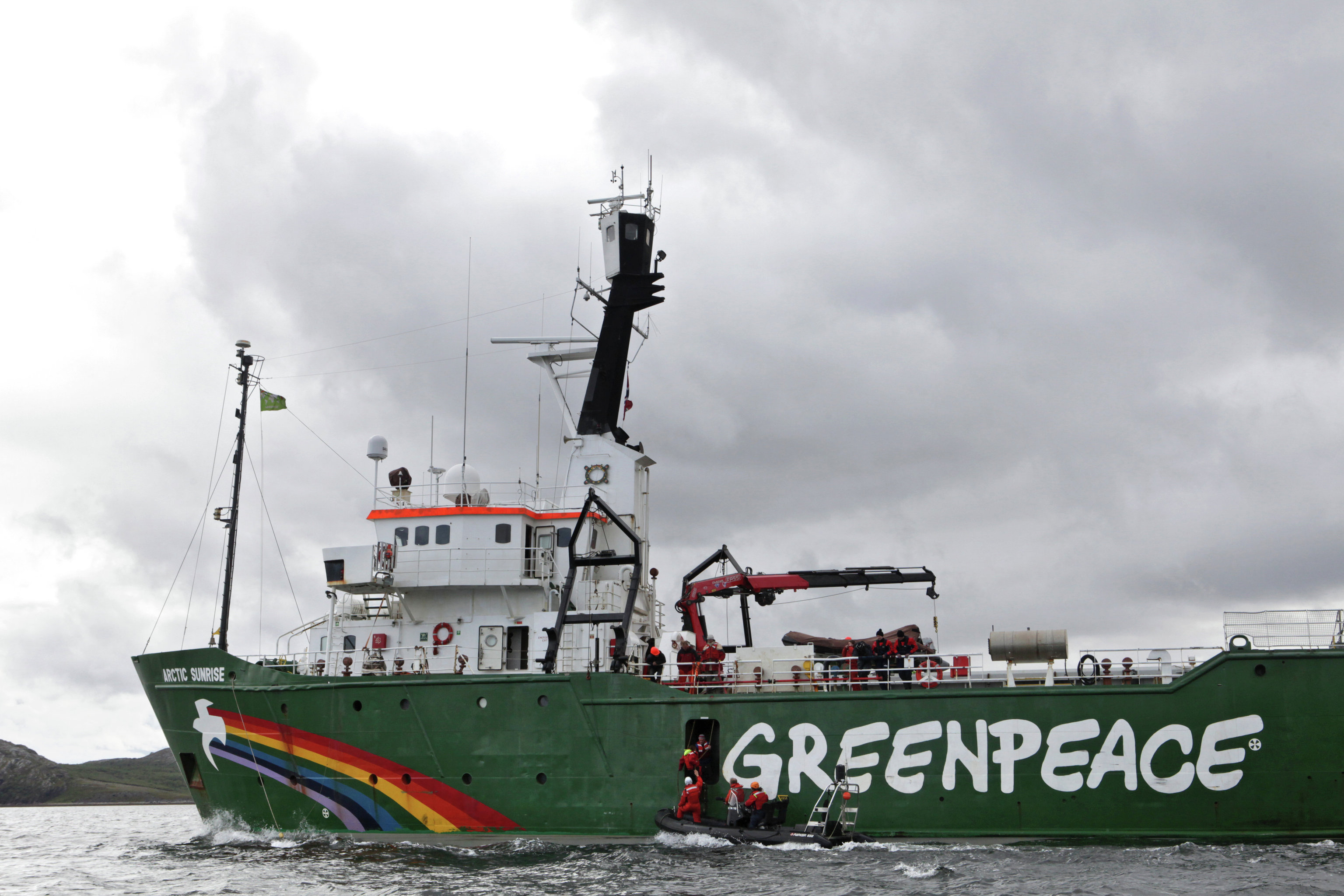MOSCOW, July 20 (RAPSI) – Russia has taken no part in the litigation relating to the seizure of Greenpeace vessel Arctic Sunrise in 2013 initiated by the Netherlands in the Permanent Court of Arbitration in The Hague due to the fact that PCA lacked jurisdiction in the case, Artem Kozhin, deputy official representative of the Russian Foreign Ministry, told journalists on Thursday.
Russia has always upheld the position that PCA had no jurisdiction in the case, according to the comments Kozhin made on the Court’s final award issued on Tuesday.
The PCA ruled earlier that Russia must pay the Netherlands about € 5.4 million in compensation in the Arctic Sunrise ship confiscation case, including legal costs and interest.
The Tribunal determined that Russia had “breached the Convention by failing to comply with the order prescribing provisional measures issued by the International Tribunal for the Law of the Sea in connection with this arbitration (“ITLOS Provisional Measures Order”) and by failing to pay the deposits requested by the Tribunal in the proceedings.”
The lawsuit was filed by the Netherlands in October 2013.
In August 2015, the Court held that Russian authorities are to compensate the Dutch side in the Arctic Sunrise case.
The PCA award does not take into account the fact that Greenpeace activists’ provocative actions directly endangered the safety of the platform and its personnel, forcing Russian authorities to resort to lawful measures to stop the wrongdoing, Kozhin said adding that it was regrettable the Court’s decision in fact facilitated pointedly illegitimate actions under the pretense of peaceful protests.
On September 18, 2013, Greenpeace activists attempted to land on the Prirazlomnaya oil rig to protest oil production in the Arctic. The next day, Russian border officials landed on the Greenpeace ship Arctic Sunrise in a helicopter and towed it to Kola Bay. All 30 crew members were arrested.
After the protest on the Prirazlomnaya, a criminal case on piracy was opened. Later, the charges were changed to disorderly conduct.
In December 2013, all 30 activists were released under an amnesty marking 20 years of the Russian Constitution.



